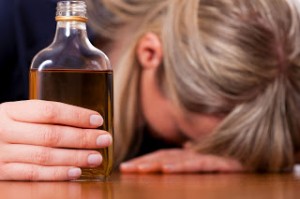 Firstly what does mutual aid mean? As a rule most people will have an idea of what self help is. Self help is possibly reading a book which will motivate you to either get fit, get rich, get motivated or get well in someway. A self help group is a place where peers come together to support one another with a common problem. Up until 10 years ago most such groups were called self help or support groups until it was pointed out the contradictory nature of the terms ‘self help’ and ‘support’. It suggests that both individualism and cooperation can co-exist, which they can but a better way to say this was to start calling self help groups mutual aid groups.
Firstly what does mutual aid mean? As a rule most people will have an idea of what self help is. Self help is possibly reading a book which will motivate you to either get fit, get rich, get motivated or get well in someway. A self help group is a place where peers come together to support one another with a common problem. Up until 10 years ago most such groups were called self help or support groups until it was pointed out the contradictory nature of the terms ‘self help’ and ‘support’. It suggests that both individualism and cooperation can co-exist, which they can but a better way to say this was to start calling self help groups mutual aid groups.
In relation to addiction, the most commonly accessed mutual aid groups are Alcoholics Anonymous (AA), Narcotics Anonymous (NA), Gamblers Anonymous (GA) Cocaine Anonymous (CA) Overeaters Anonymous (OA) and Al-Anon. AA is a group set up to support those that identify themselves as having a problem with alcohol. The group members will identify with having a problematic relationship with alcohol in someway. The idea of the group is to work through a 12 step program of recovery with someone ( often referred to as a sponser ) who has been abstinent from alcohol for a period of time and has already worked through the 12 steps. The aim is to become abstinent from alcohol and improve ones quality of life and the lives of other people who have been affected by the alcoholic behaviour. It is often reported by group members that it is the ‘therapeutic value of one alcoholic helping another’ that they find most useful.
In mutual aid groups, specific modes of social support emerge. Through self-disclosure, members share their stories, stresses, feelings, issues, and recoveries. They learn that they are not alone; they are not the only ones facing the problem. This lessens the isolation that they may experience. NA and CA operate in the same way but the focus is more on addiction as a whole rather than to one particular substance. GA focuses on the addictive nature of gambling and again suggests abstinence from gambling in order to gain recovery. OA is slightly different as it does not suggest that you abstain from food but will often help members to discover what their trigger foods are and might suggest abstention from those. Again it is the combination of the 12 steps and the support of the other group members that help members enter into a recovery process. The Al-Anon Family Groups are a fellowship of relatives and friends of alcoholics who share their experience, strength and hope in order to solve their common problems,” believing that “alcoholism is a family illness and that changed attitudes can aid recovery” (Al-Anon 1981).
AA was originally founded by ‘Bill W’ and ‘Dr Bob’ in 1935. It is now estimated that over 1million people attend more than 40,000 groups in over 100 countries (Borman 1992). AA and other anonymous groups have become to be known as a “twelve-step mutual aid groups” because their program’s for abstinence involves the following twelve steps:
- We admitted we were powerless over alcohol—that our lives had become unmanageable.
- Came to believe that a Power greater than ourselves could restore us to sanity.
- Made a decision to turn our will and our lives over to the care of God as we understood him.
- Made a searching and fearless moral inventory of ourselves.
- Admitted to God, to ourselves, and to another human being the exact nature of our wrongs.
- Were entirely ready to have God remove all these defects of character.
- Humbly asked Him to remove our shortcomings.
- Made a list of all persons we had harmed and became willing to make amends to them all.
- Made direct amends to such people wherever possible, except when to do so would injure them.
- Continued to take personal inventory and when we were wrong promptly admitted it.
- Sought through prayer and meditation to improve our conscious contact with God as we understood Him, praying only for knowledge of His will for us and power to carry that out.
- Having had a spiritual awakening as the result of these steps, we tried to carry this message to alcoholics and to practice these principles in all our affairs.
In the South Manchester area alone there are approximately 80 AA meetings a week (click here to download a list of the meetings available). In Hale Altrincham and wilmslow area alone there are 14 AA meetings a week.
It is becoming more widely recognised that society as a whole depends largely on organisations and services such as The Government, The Police and the NHS to provide help for issues they may be experiencing. Mutual aid groups are tapping in to a new movement known as Asset based Community Development.
ABCD is a set of values and principles which:
Identifies and makes visible the health-enhancing assets in a community
Sees citizens and communities as the co-producers of health and well-being, rather than the
recipients of services
Promotes community networks, relationships and friendships that can provide caring, mutual
help and empowerment
Identifies what has the potential to improve health and well-being
Supports individuals’ health and well-being through self- esteem, coping strategies, resilience
skills, relationships, friendships, knowledge and personal resources
Empower communities to control their futures and create tangible resources such as services,
funds and buildings (Foot and Hopkins, 2010)
Addiction recovery Mutual aid groups are an asset to the community as you do not need to be referred into them by a specialist worker you can turn up at any meeting at any time and if you have a desire to be abstinent from your particular substance and/or addictive behaviour you can become a member without having to pay any fees.
Therapy works well alongside mutual aid recovery as often becoming abstinent can involve looking at what may have underlined the addiction in the first place. Therapy provides a safe non- judgemental place in which this can be explored at your own pace. If you want any more information on abstinent based program’s and/or wish to enter into addiction therapy contact me on 07983726647 or email victoriaabadi66@gmail.com
 People often ask me if I find that drugs and alcohol are as widely used in wealthy areas such as Hale and Wilmslow in Cheshire where I run my addiction therapy clinics as they are in poorer inner city areas. My response is that addiction knows no boundaries when it comes to age, race, class, creed, religion or sexual identity. It does not care if you live in a ten bedroom mansion or share a one bedroom flat with four other family members. It does not care what colour you are. If you are Catholic, Muslim, Jewish or C of E. Even if your religion states that you should not drink addiction does not care. The definition of addiction is the continued repetition of a behaviour despite adverse consequences. So regardless of what your religion tells you or how many BMW’s you have parked outside your house if you suffer from the disease of addiction the chances are you will use if you have millions of pounds to loose or just your self respect and dignity.
People often ask me if I find that drugs and alcohol are as widely used in wealthy areas such as Hale and Wilmslow in Cheshire where I run my addiction therapy clinics as they are in poorer inner city areas. My response is that addiction knows no boundaries when it comes to age, race, class, creed, religion or sexual identity. It does not care if you live in a ten bedroom mansion or share a one bedroom flat with four other family members. It does not care what colour you are. If you are Catholic, Muslim, Jewish or C of E. Even if your religion states that you should not drink addiction does not care. The definition of addiction is the continued repetition of a behaviour despite adverse consequences. So regardless of what your religion tells you or how many BMW’s you have parked outside your house if you suffer from the disease of addiction the chances are you will use if you have millions of pounds to loose or just your self respect and dignity.
 Eating disorders share many of the same characteristics as other addictions. As such once recognised they can be treated. Eating disorders are characterized by an unhealthy attitude towards food. They frequently coexist with other illnesses such as depression, substance abuse, or anxiety disorders.The most common eating disorders are:
Eating disorders share many of the same characteristics as other addictions. As such once recognised they can be treated. Eating disorders are characterized by an unhealthy attitude towards food. They frequently coexist with other illnesses such as depression, substance abuse, or anxiety disorders.The most common eating disorders are: Compulsive shopping was recognised as a psychiatric disorder in the early 20th century. Similar to the use of alcohol and drugs an individual will compulsively shop in an attempt to avoid their feelings and can occur when a person feels depressed, lonely and angry. The “good feeling” is temporary as compulsive shopping and spending generally makes a person feel worse.
Compulsive shopping was recognised as a psychiatric disorder in the early 20th century. Similar to the use of alcohol and drugs an individual will compulsively shop in an attempt to avoid their feelings and can occur when a person feels depressed, lonely and angry. The “good feeling” is temporary as compulsive shopping and spending generally makes a person feel worse. Having an addiction to drugs means that you are controlled by your need for a particular substance to satisfy cravings and prevent withdrawal symptoms. Addiction is not dependent on the type of drug and can occur whether the drugs are “street” drugs, or prescribed by a doctor. When things have got to the point that you are unable to get through the day without a “fix”, then you have a problem.
Having an addiction to drugs means that you are controlled by your need for a particular substance to satisfy cravings and prevent withdrawal symptoms. Addiction is not dependent on the type of drug and can occur whether the drugs are “street” drugs, or prescribed by a doctor. When things have got to the point that you are unable to get through the day without a “fix”, then you have a problem. Many people can drink alcohol without it having a negative or harmful effect on themselves or those around them. However for some people alcohol has an increasingly negative effect on their behaviours and health. If you or a family member drink too much on a regular basis or find it increasingly difficult to manage without a drink then the situation may have changed from social use to an addiction.
Many people can drink alcohol without it having a negative or harmful effect on themselves or those around them. However for some people alcohol has an increasingly negative effect on their behaviours and health. If you or a family member drink too much on a regular basis or find it increasingly difficult to manage without a drink then the situation may have changed from social use to an addiction. For decades addiction has been recognised as an illness. The addicted person tries to avoid, or anaesthetise the way that they feel by using a substance or behaviour in a compulsive attempt to avoid their emotions. An individual may be addicted to drugs (street or prescription), or alcohol, gambling, shopping, sex and/or relationships, exercise, work, or they may have an obsession with food (which can manifest itself as bulimia, orthorexia nervosa or compulsive over eating).
For decades addiction has been recognised as an illness. The addicted person tries to avoid, or anaesthetise the way that they feel by using a substance or behaviour in a compulsive attempt to avoid their emotions. An individual may be addicted to drugs (street or prescription), or alcohol, gambling, shopping, sex and/or relationships, exercise, work, or they may have an obsession with food (which can manifest itself as bulimia, orthorexia nervosa or compulsive over eating). Self-harm refers to the act of cutting and burning oneself and is an addiction that is widely misunderstood. When a person is a self-harmer they engage in compulsive and obsessive behaviours which involve physically harming their bodies in an attempt to avoid feelings that they feel overwhelmed by and unable to cope with. Self-harming can include cutting, burning with cigarettes and general acts of physically harming one-self, such as punching one self, pulling your own hair, or hitting ones head against a wall repeatedly. Self-harm can also be accompanied by other addictive tendencies, especially drug addiction and eating disorders. Just like drug addiction and alcoholism the self-harmer has an incurable and progressive disease which can be managed through therapy and treatment. Some signs that you may need help with self-harming addiction: Have you ever been hospitalised as a result of your self-harming? Do you cut, burn or punch yourself as a means of dealing with painful emotions? Do you keep your self-harming a secret because of shame or fear of discovery? Do you often have scars, bruises or burns that you feel you must hide from others? Do you self-harm in order to punish yourself for something that you think you have done? Or for something that has been done to you? Do you feel that you HAVE to hurt or injure yourself in order to stop feeling overwhelmed by your emotions? Have you tried to stop harming yourself but been unable to do so? This is by no means a definitive list, but if you identify yourself as having one or more of these symptoms please do
Self-harm refers to the act of cutting and burning oneself and is an addiction that is widely misunderstood. When a person is a self-harmer they engage in compulsive and obsessive behaviours which involve physically harming their bodies in an attempt to avoid feelings that they feel overwhelmed by and unable to cope with. Self-harming can include cutting, burning with cigarettes and general acts of physically harming one-self, such as punching one self, pulling your own hair, or hitting ones head against a wall repeatedly. Self-harm can also be accompanied by other addictive tendencies, especially drug addiction and eating disorders. Just like drug addiction and alcoholism the self-harmer has an incurable and progressive disease which can be managed through therapy and treatment. Some signs that you may need help with self-harming addiction: Have you ever been hospitalised as a result of your self-harming? Do you cut, burn or punch yourself as a means of dealing with painful emotions? Do you keep your self-harming a secret because of shame or fear of discovery? Do you often have scars, bruises or burns that you feel you must hide from others? Do you self-harm in order to punish yourself for something that you think you have done? Or for something that has been done to you? Do you feel that you HAVE to hurt or injure yourself in order to stop feeling overwhelmed by your emotions? Have you tried to stop harming yourself but been unable to do so? This is by no means a definitive list, but if you identify yourself as having one or more of these symptoms please do